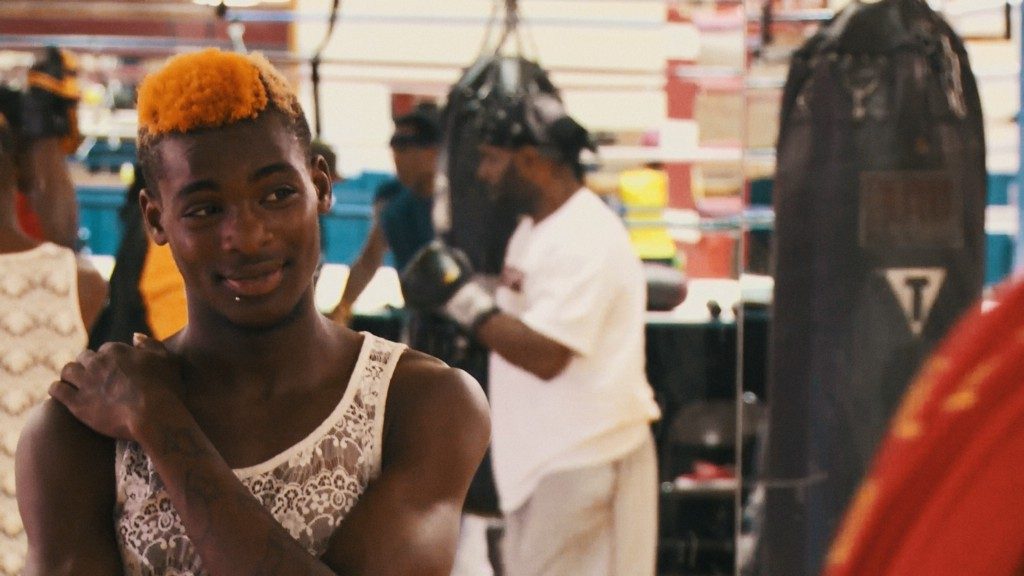Dana Flor wrote and
directed the Emmy award-winning documentary “Latinos in Beisbol,” and the
Emmy-nominated documentary “Cesar Chavez” for NBC. Flor wrote and produced
the two-hour special “True Stories of the NYPD” for the History Channel and “Latin Jazz: The Perfect Combination” for America’s Jazz Heritage and the
Smithsonian Institute. Flor has covered a wide-range of stories for National
Geographic, Reuters Television, CNN, and others — including breaking news
throughout Latin America and around the world. (Press materials)
“Check It” will premiere at the 2016 Tribeca Film Festival on April 16.
W&H: Describe the
film for us in your own words.
DF: “Check It” is a feature-length documentary about a gay
African-American gang struggling to survive in one of Washington DC’s most violent
neighborhoods.
W&H: What drew
you to this story?
DF: I was first drawn to “Check It” because it’s an
incredibly captivating, untold story with the most fascinating characters that
I could ever hope to find. But beyond that, once I spent time with the gang, I
really wanted answers to some questions — like, how could this be? How can
kids in the nation’s capital grow up in abject poverty, be bullied, abused,
thrown out of school, forced to band together for protection and ultimately,
sell themselves on the streets to survive?
The Check It gang constantly gather to steal, fight and
prostitute literally a few blocks from the White House. They operate in the
shadows of the emblem of all the hopes and dreams America has to offer, while
the Check It — in many ways — embodies many of its biggest failures.
W&H: What do you
want people to think about when they are leaving the theater?
DF: I hope they fall in love with these kids like I have. I
want people to sympathize with a subculture that, prior to seeing the movie,
they probably didn’t know existed. And I would hope that our film will help
create a willingness to change the way we treat the Check It, and kids like
them. Their struggle exists not just with one small gang in one city, but
worldwide.
W&H: What was the
biggest challenge in making the film?
DF: It’s a challenge to gain the trust of kids who have been
let down by many of the people and institutions they have encountered in their
lives. It took patience, and most importantly, time. We had to show that we
were there for them — for the long haul.
W&H: How did you
get your film funded? Share some insights into how you got the film made.
DF: My partner and I have worked on this film as a labor of
love. We worked with no pay throughout, taking other jobs to keep us going
meanwhile. It’s a tough slog and requires a lot of patience and
resilience.
We feel very fortunate to have received grants from Tribeca, Pare Lorenz and the DC Commission on the Arts and
Humanities. We raised money with a crowdfunding campaign, which helped pay for
our editors, and we received some funds and in-kind services from our executive
producers.
W&H: What’s the
biggest misconception about you and your work?
DF: I’m not sure that this applies to me specifically, but I
feel that most people’s biggest misconception is that documentaries are done
quickly. I’ve had many people look at me with a tinge of pity and say, “Oh,
you’re still working on that film?” Documentaries take time.
W&H: What’s the
best and worst advice you’ve received?
DF: The worst: pursue your passion and the money will
follow. Alas, I’ve not found that to be precisely true. The best advice I have
received was, “Take risks. Be bold.”
W&H: What advice
do you have for other female directors?
DF: I’d pass on the above advice: Take risks, be bold and
don’t wait for permission. Believe in yourself and your vision, even if no one
else does. Also, support other women — in film, in your world, everywhere. We
need to help, mentor and support each other.
W&H: Name your
favorite woman-directed film and why.
DF: I love a lot of women directed movies — “The Kids Are
All Right,” by Lisa Cholodenko, “Bright Star” and “The Piano” by Jane Campion and “Lost in Translation” by Sofia Coppola. I also think Penelope Spheeris’ “Wayne’s World” is a brilliant movie.







